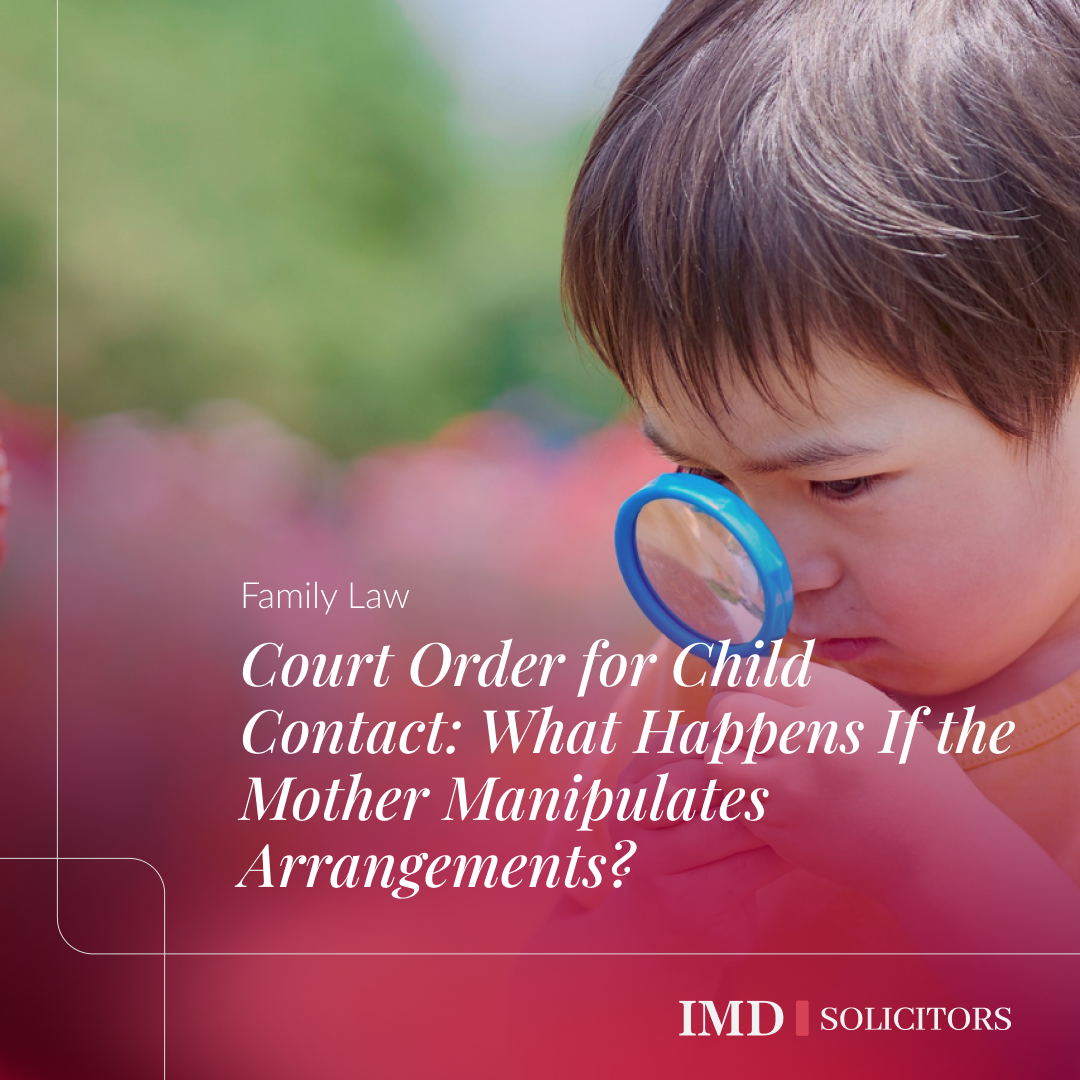Court Order for Child Contact: What Happens If the Mother Manipulates Arrangements?

Speak to a member of our specialist international team of UK family lawyers today on 0330 107 0107.
Background
At the heart of this case was the welfare of a two-year-old boy. It also raised the rights of his father, our client, to develop and maintain a meaningful relationship with his child. A court order was in place. However, the father was unable to exercise his contact rights, because the mother persistently manipulated the arrangements.
The parents had never been married, and their relationship was volatile. When the child was born in early 2022, the mother did not register our client as the father on the birth certificate. As a result, he issued proceedings himself to declare paternity. That case concluded with an order naming him as the child’s father, granting him parental responsibility, and setting limited contact arrangements. The order was made by consent and was notably restrictive: overnight contact would not be permitted until the child turned three. At the time, without access to the earlier case documents, it was unclear why such limitations had been imposed.
Legal Issues
After reviewing the situation, we identified two main issues:
- Enforcement of existing contact – the mother’s repeated breaches meant our client could not spend time with his son despite a valid order.
- Variation of the contact order – the September 2022 order appeared disproportionately harsh, with no clear evidence justifying such limited contact.
We therefore issued two applications: one to enforce the existing order, and another to vary the arrangements to reflect the child’s best interests. Alongside these, we sought additional orders, including:
- A shared live-with order and contact arrangements to include regular weekdays and weekend overnight time.
- Adding our client’s surname to the child’s as a double-barrel surname.
- Disclosure of the child’s nursery and school details.
- Ensuring our client’s name was included on all medical and educational records.
We also managed our client’s expectations carefully. The family courts are generally reluctant to impose punitive sanctions on parents for non-compliance, focusing instead on pragmatic, child-centred outcomes.
Strategy and Approach
The proceedings lasted over a year. Initially, contact was limited to a supervised setting at a contact centre. Meanwhile, the mother filed five applications of her own, including a request to relocate with the child to Poland.
She also raised allegations of domestic abuse and controlling behaviour, leading to a fact-finding hearing. The court found no evidence supporting the mother’s allegations. Instead, the court made substantial findings against the mother for breaching the existing order. This marked a turning point, enabling our client to move from supervised contact to overnight stays. His time with his son proved positive and nurturing, strengthening their bond.
Challenges and Outcome
The mother remained resistant throughout proceedings, often prioritising her own position over the child’s best interests. Ultimately, the matter proceeded to a final hearing, primarily due to her relocation application.
The judge made the following key decisions:
- Refused the mother’s relocation request.
- Granted a shared live-with order.
- Ordered regular and frequent contact, including overnight stays.
- Approved the addition of the father’s surname to the child’s, creating a double-barrel name.
Although the court confirmed the mother had breached previous orders, no enforcement sanctions were made. This was disappointing for our client; however, it reflected the court’s consistent focus on child welfare. The emphasis was on the child’s interests rather than parental punishment.
In the end, our client achieved his primary goal: a secure, meaningful role in his son’s life. Despite the challenging journey, he was extremely satisfied with the outcome. He now enjoys time with his child. It is the time he had fought so hard to secure.
This article is for general information only and does not constitute legal or professional advice. This article was created on 06/10/2025. Please note that the law may have changed since this article was published.



















